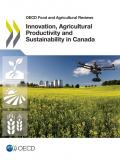Taking the case of Morocco, this paper aims to explore the challenges to system-building initiatives for the development of the solar energy sector. Drawing on innovation systems literature, the author examine factors that contribute to the emergence of a solar energy sector and delve into how complex governance dynamics affect such developments in Morocco. Aside from low capabilities and knowledge on solar energy technologies, a key challenge to the development of an innovation system in Morocco is the lack of a strategic approach that not only engages all relevant stakeholders but also integrates diverse objectives. The role played by the state (and its supported institutions) in the society and its participation in the economy is likely to explain why these processes are slow to prevail.
The Green Action Plan (GAP), proposed by the European Commission in 2014, is aimed at helping SMEs turn environmental challenges into opportunities. It focuses on resource efficiency, green entrepreneurship and green skills, eco-innovation, greener value chains, and facilitating market access for SMEs. It also provides tools for the internationalisation of European SMEs, taking advantage of Europe's leadership in green technologies. The Plan complements other EU initiatives, such as the Green Employment Initiative, a Roadmap to a Resource Efficient Europe, Circular Economy and European Industrial Renaissance, and is intended to create synergies between them, using the financing under existing programmes. The actions proposed are intended not only to benefit SMEs and the economy, but also to help address environmental challenges related to resource scarcity, waste management and climate change.

Ministers at the Seventh “Environment for Europe” Ministerial Conference (Astana, 21–23 September 2011) agreed to take the lead in the transition to a green economy and to make a substantive contribution to the discussions on green economy within the context of sustainable development and poverty alleviation at the United Nations Conference on Sustainable Development (Rio+20 Conference). They invited the United Nations Economic Commission for Europe (ECE) to contribute, together with the United Nations Environment Programme (UNEP) and relevant international organizations, to the development of the Rio+20 green economy outcomes.
This report contains the requested overview, which was prepared jointly with UNEP and in consultation with the United Nations Development Programme, the International Labour Organization, the United Nations Educational, Scientific and Cultural Organization, the World Health Organization, the United Nations Industrial Development Organization, the European Environment Agency and the Organization for Economic Cooperation and Development.
This report was prepared in accordance with the “Environment for Europe” (EfE) Reform Plan to support the work of the Seventh EfE Ministerial Conference. It follows the agreed questions for discussion in the multi-stakeholder round tables, describing recent trends, challenges and achievements, as well as recommendations for the way forward.
The document was developed jointly by the United Nations Economic Commission for Europe (UNECE) secretariat and the United Nations Environment Programme to support Conference discussions on this topic of the agenda. The International Labour Organization provided two case studies. The document also reflects comments received from member States.
The 2011 Green Growth Strategy provided initial guidance to governments on how to achieve economic growth and development, while preventing costly environmental damage and inefficient resource use. What progress have countries made in aligning economic and environmental priorities since 2011? This report attempts to evaluate this progress and highlight where there is broad scope to heighten the ambition and effectiveness of green growth policy. It draws lessons from green growth mainstreaming across the OECD’s work programme, notably in terms of how governments can maximise institutional settings to seize economic opportunities surrounding the transition to a green economy, and considers ways to enrich the Green Growth Strategy based on work undertaken since its launch.
Today’s financial system is in many ways too large, too complex, and too removed from the real economy. It has become focused on short--‐term profit maximisation, it does not pay enough attention to social and environmental risks, and it leaves 2.5 billion people without access to adequate or any financial services. Banks play an important role in the economy intermediating between savers and borrowers. As such the role banks can play in contributing to or undermining sustainable development is profound. Values based banking is purposively oriented towards the development of a sustainable economy.
This publication provides an opportunity for Asia and the Pacific policymakers and stakeholders, such as those from the private sector, academia and civil society organizations, to actively engage with the global negotiations, and to lay out the financing and partnership frameworks for the development agenda beyond 2015 from the regional perspectives.
The publication calls for the Asia-Pacific region to work together to raise and channel more substantial financial resources to invest in the social sector, infrastructure development and efforts to tackle climate change in order to ensure a transformative change to bring about inclusive growth and sustainable development.
Although there is progress in developing green sectors in North America and East Asia, the key challenge facing the expansion of economy-wide green innovation and structural change in these regions is the absence of relevant policy follow-up to the green stimulus enacted during the Great Recession. The boost to green sectors provided by such measures is waning quickly, given that much of the green stimulus focused on energy efficiency.
The biggest obstacles to sustaining green growth in North America and East Asiaare major market disincentives, especially the under-pricing of fossil fuels and market failures that inhibit green innovation. A three-part strategy to overcome these obstacles would involve: first, removing fossil fuel subsidies; second, employing market-based instruments to further reduce the social costs of fossil fuel use; and third, allocating any resulting revenue to public support for green innovation and investments. Such a strategy would ensure that green growth is not about promoting niche green sectors but instigating economy-wide innovation and structural transformation in North America and East Asia.
